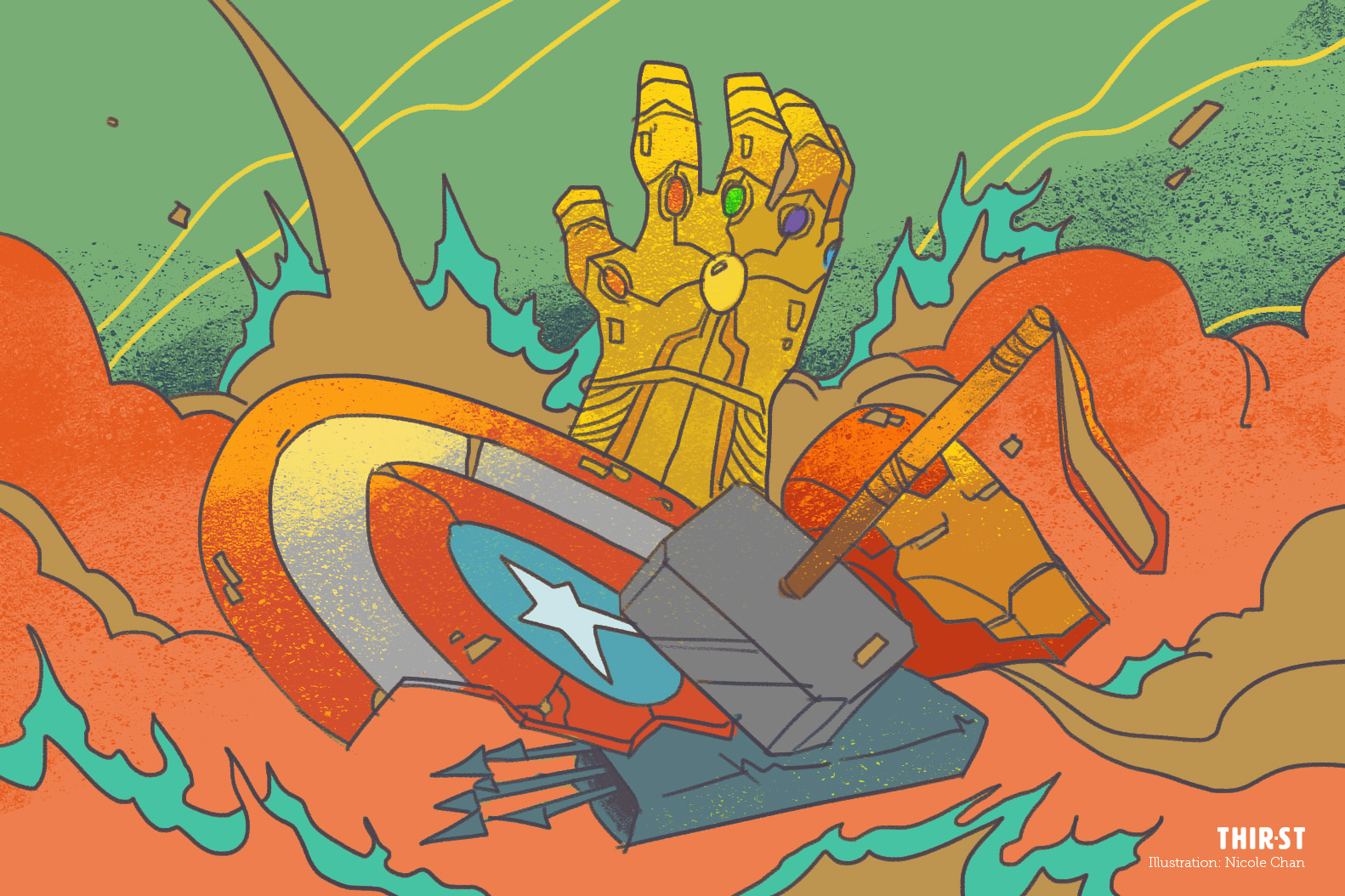When Avengers: Endgame was released, the thoughts that came to my mind were:
“Are they really gone?”
“What will the survivors do?”
“What can they do?”
Just last year, Avengers: Infinity War ended on a very sombre note. The Avengers had failed and half the population had vanished.
I don’t know about you, but I was optimistic that they would find a way to bring everyone back. I imagined that the surviving Avengers would somehow be able to kill Thanos and save everyone who didn’t make the snap.
This was my perception of justice.
In a superhero movie, justice is simple – kill the bad guy, protect the civilians and work together with the good guys/people with special powers.
Inherently, most of us perceive justice as the people with power or authority protecting the innocent and punishing those that bring harm.
We expect that when someone does something wrong, they will be punished proportionately by the system. We get angry with the system when they fail to give out severe punishment; we scoff when they prioritise rehabilitation and second chances.
If you’ve read Biblical accounts of how Jesus behaved, you might also be angry.
- On meeting the corrupt government official who had been oppressing the poor, Jesus did not punish or condemn him. He said: “I must stay at your house today.” That led the people who saw this to mutter: “He has gone to be the guest of the sinner.” (Luke 19)
- Instead of joining in to throw stones at a woman who committed adultery, Jesus forgave her. (John 8)
- Jesus allowed a prostitute to wipe and kiss his feet. When Simon the Pharisee saw this, he thought to himself: “If this man were a prophet, he would know who is touching him and what kind of woman she is – that she is a sinner.” (Luke 7:36-50)
- Peter, a disciple of Jesus, cut off the right ear of the servant of the high priest when he was upset with the men who were trying to arrest Jesus. Instead of affirming Peter, Jesus rebuked him, and touched the servant’s ear and healed him. (Luke 22:47-52)
- For the very people who nailed him to the cross and laughed at him, Jesus interceded for them and asked God to forgive them because they did not know what they were doing (Luke 23-24)
Why would Jesus – the Son of God who loves righteousness and hates evil – behave in such a manner?
I guess the most absurd thing Jesus did was choosing to die in the place of all these terrible people, including me, so that I would not have to suffer the punishment of my actions.
With a snap of his fingers, Jesus could have destroyed everyone. So, then, why die for us? Why forgive us? Why give us a second chance?
In my years of trying to understand God (of which I still fall short greatly), I have come to realise that Jesus’ administration of justice includes love.
“For God so loved the world, that he gave his one and only Son that whoever believes in Him will not die but have eternal life.” – John 3:16
It’s love that compels God not to destroy us, but to forgive us and find joy in transforming us. His delight is found not in our punishment but our turning back. We therefore live in an environment where true repentance leads to second chances.
He desires that out of the forgiveness we receive, we “go and sin no more”, just as he told the adulterous woman (John 8:11 NKJV).
Adultery is sin. Sexual offences are sin. We might be tempted to condemn others who are struggling with sin different from our own. We might even label someone a “bad guy” based on the type of sin they commit.
But we all struggle with sin. That is exactly Jesus’ point when he told the crowd wanting to stone the adulteress: “Let the one who is without sin cast the first stone.” Jesus was not saying adultery isn’t sin.
Jesus neither condemns nor approves of our previous lifestyle. He wants us to move ahead, change our behaviour, and find the purpose and plan that He has created for us. He desires for us to never go back to our sinful ways and for us to be reconciled with him.
God’s desired outcome via transformation and our desired outcome via punishment are not very much different – we want the sin to be gone.
Reading about the increasing number of sexual offences in the news troubles and worries me. I personally know people who have been sexually assaulted and they take years, if ever, to find freedom from that experience. We need to do something.
Punishment and a taste of unpleasant consequences can be very effective measures of convincing someone not to do something again. However, the underlying emotion is fear.
“I’m going to teach you a lesson” is often the accompanying refrain to a beating or punishment. But perhaps, there are other ways that lessons can also be learnt.
Consider Jesus’ approach by looking back at the story of Zacchaeus (Luke 19). After spending some time with Jesus, the tax collector had a change of heart and declared that he would give half of his possessions to the poor and pay 4 times the amount he had previously cheated anyone of.
I’m also reminded of a recent visit to a Christian drug rehabilitation centre. They don’t have medicine, and I was told that when withdrawal starts to set in, the leaders would massage, pray and stay with those who are struggling. They would also spend time reading the Bible during the day. Miraculously, God’s love did what even jail time could not – helping them to kick their drug addiction.
God is still teaching me how to talk about sex and sexual struggles in a transformative manner that gives life and wholeness. I hope that one day we, as a Church, can do our part to restore the sexually broken (and in turn decrease the number of sexual offences) in a way that leads to new life and not more fear.
I found it interesting that immediately after Easter weekend – a weekend where we recalled God’s gifts of forgiveness and redemption – our minds and social media feeds were filled with vengeance, punishment and condemnation.
We have all been given second chances. Jesus came so that we might have life, and life in all its fullness (John 10:10).
It’s time we have similar dreams and aspirations for those around us – a little bit like wishing that Thanos would turn from his ways and snap everyone back.









